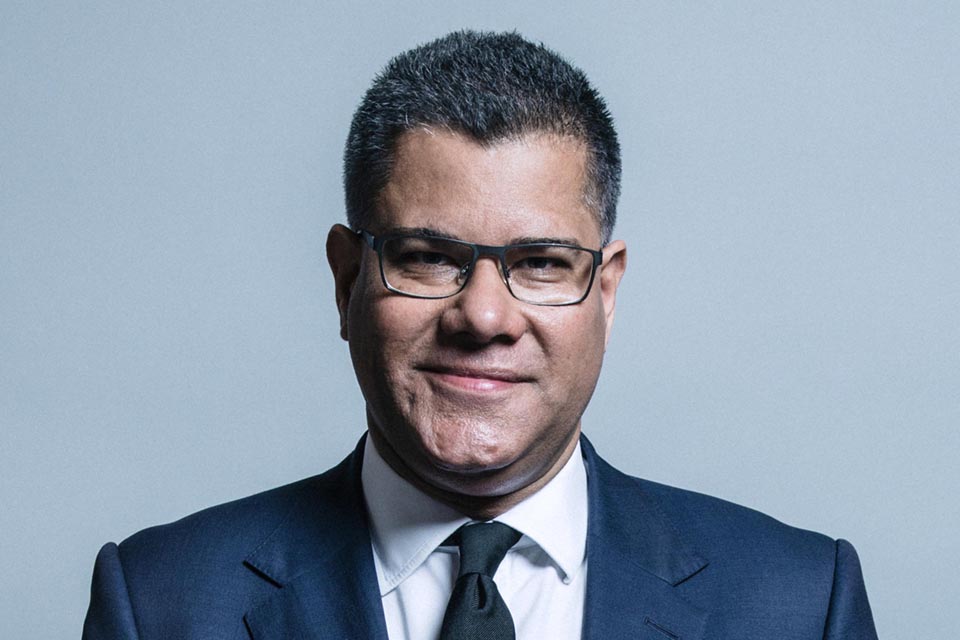Moving finance towards our clean, green, and resilient future
COP26 President-Designate Alok Sharma at the Venice Climate Conference, organised by the Italian finance ministry and central bank

Good afternoon and thank you to Minister Franco and Governor Visco for organising this conference.
Friends, climate change is the greatest challenge that we face.
And we must act now, to protect people and nature from its impacts, and to drive down global emissions.
In 2015 the countries of the world signed the Paris Agreement, and committed to do all they could to limit global temperature rises to well below 2 degrees, and closer to 1.5 degrees.
Now, to keep that 1.5 degree limit within reach, we must halve global emissions by 2030.
And these efforts depend on finance.
Without it, the task ahead is near impossible.
So, one of my key aims for COP26 is to get finance flowing to climate action, both public finance and private finance.
We must all respond with the urgency the crisis demands, particularly to mobilise public and private finance into emerging markets and developing countries, where the need is greatest, and help to build green economies, creating jobs and prosperity.
On climate, the G20 nations must lead.
And of course I welcome the progress made by Finance Ministers and Central Bank Governors over the last two days.
And I am encouraged by the work of the sustainable finance, framework and infrastructure working groups, and the Financial Stability Board.
When it comes to public finance, it is essential that developed countries deliver the $100billion a year that they have promised to developing countries.
In 2018, we mobilised $80 billion, a significant amount, but not enough.
And I have always said, delivering the full $100billion is a matter of trust.
So I welcome the fact that, under the UK Presidency, every G7 country has committed to increase its public finance commitments, including finance for adaptation.
Canada, Germany and Japan have put new money on the table immediately after the G7 summit.
And I look forward to other donors, including other G7 countries, stepping up with new or increased commitments ahead of COP26.
And I am pleased that the IMF is preparing a $650bn allocation of Special Drawing Rights.
The G7 has made clear that they want to channel almost a sixth of the newly allocated SDRs to support healthy, green and resilient recoveries from Covid-19 in the poorest and most vulnerable countries.
And I very much support this call and want other countries to back the G7’s approach.
And I want to see a much, much more ambitious level of SDR recycling from the richer nations, than we saw immediately after the 2009 financial crisis.
So, I urge richer countries, and the IMF, to respond urgently to the G7’s call on SDRs, and the G20 to address the debt challenges faced by developing countries.
I also urge Multilateral Development Banks to take action.
Every MDB should set a date by which they will align with the Paris Agreement, as the World Bank and the EBRD have done.
And every MDB should meet their climate finance targets, increasing them where possible, and develop plans to mobilise more private finance.
When it comes to private finance, we are of course working closely with Finance Ministers, in coordination with the efforts of Mark Carney, to ensure that every financial decision takes climate into account.
And members of GFANZ, the Glasgow Financial Alliance for Net Zero, today represents over $88 trillion of assets. All signed up to science-based targets to reduce emissions to net zero by 2050 at the latest.
This is good news, yet we know barriers exist to investment in emerging markets.
Many can seem too risky to attract large-scale institutional capital.
And investors are cautious.
Yet we know that emerging markets hold enormous investment opportunities.
The IFC estimates there are nearly $23 trillion in opportunities for climate-smart investments in emerging markets between now and 2030.
So, as Shemara has just said, we must bring public and private finance together to break down the barriers to investment, and to support a just and inclusive transition to global net zero.
I welcome Macquarie leading the GFANZ work to accelerate this capital into emerging markets.
And I welcome today’s discussion on how MDBs can support the transition to global net zero.
I urge MDBs and private financial firms to increase their collaboration, and scale-up blended finance initiatives and technical assistance, and to improve the conditions for investment within countries, and build pipelines of high-quality, bankable projects.
Together, you can demonstrate that public finance can de-risk investment and leverage in significant private capital.
So, ahead of COP, I encourage MDBs to share plans for mobilising private finance faster, and I urge private financial institutions to work with MDBs on these plans, to help show how finance will flow in support of countries’ ambitious plans for climate action.
Such steps are essential if we are to redirect the sums flowing through the global economy towards our green future, and secure the trillions of dollars required to build resilience, meet global net zero, and keep the 1.5 degree limit alive.
These collaborative efforts must endure far beyond COP26.
Friends, this is the decisive decade.
And the decisions you take now will set the course of the planet.
Business as usual is not an option.
So let’s work together.
To divert finance from the polluting industries of the past, towards our clean, green, and resilient future. Creating jobs and growth in every corner of the globe.
Thank you.